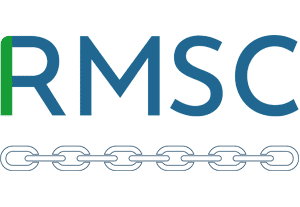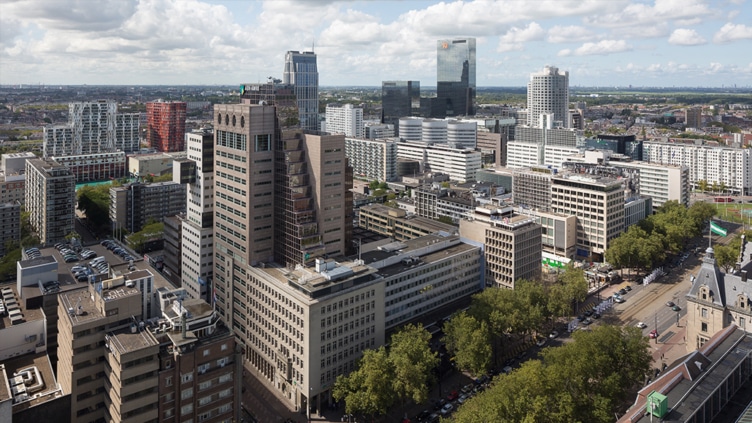Sustainability considerations for banks when financing port and shipping industries
If port and shipping industries don’t want to miss the boat, they should be proactive in their ambition to move beyond simply being compliant with (upcoming) sustainability rules and regulations. Peter van Ees, Banker and Business Developer Renewable Energy at ABN-AMRO, feels that banks are in fact more ambitious, and might just not be willing or able to finance polluting business models at all. He believes there is now a growing case to be made for banks to take sustainability considerations into account when it comes to investment decisions. Here he explains why.
Accelerating the energy transition
Peter van Ees believes this is part of the trend among banks in becoming more ambitious to accelerate the energy transition. But sustainability considerations are also important from an economic perspective, alongside securing the position of the Dutch (shipping) industry as European frontrunners towards the future. This applies particularly to the Amsterdam, Rotterdam and Antwerp port regions.
Meanwhile the private sector faces growing and imperative sustainability provisions, at both the national and international levels. Companies that fail to comply, would most likely lose their licence to operate. “For a bank this is a serious matter, because it might ultimately lead to clients going out of business”, explains Peter. “In addition to rules and regulations we are also keen on maintaining our ‘social’ licence to operate.
Meaning that our own sustainability ambitions might go further than those being enforced”. It’s also impractical or impossible to maintain differentiating investment criteria for various industries. Peter would even go as far as to call such an approach risky in terms of public opinion.
Looking ahead to keep clients on the books
He believes the genie is out of the bottle in terms of taking responsibility for sustainability. “Ignoring the need for a different attitude is no longer an option. They sometimes wonder whether the shipping industry is fully aware of the implications”. As an example, he mentions the Scope 1,2,3 regulation proposed recently by the US Securities and Exchange Commission.
Under the proposed regulation, companies would be required to report their carbon emissions on three levels.
From the bank’s perspective, under Scope 3 they would need to report the carbon emissions arising from the bank’s loans and investments; this would encompass all assets, including emissions produced by investments in the entire value chain. For shipping this means shipowners, shipping and charterers. “If this regulation comes into force it would have serious implications for the types of investments we are able to undertake.
If the shipping industry is unwilling or unable to report their carbon emissions, we would possibly not be able to provide finance at all”, Peter points out. He is keen to add that banks don’t have a wait-and-see attitude towards upcoming rules and regulations. They look ahead to be able to keep clients on their books. That’s why he believes the port and shipping industries need to take a proactive approach in developing new ‘green’ products, or the greening of existing processes.
Rotterdam is on the right track
For the port of Rotterdam this means greening the entire supply chain. Take grains for example; they should arrive aboard green (emission-free) ships, industrial processing should be done in plants that are powered by electricity instead of gas, and transportation to end-users should be performed with clean trucks or inland barges. According to Peter, this calls for an overhaul of assets.
On a positive note, he points out that Rotterdam is already on the right track in this area. “The last few years have seen major investments in the Rotterdam area, providing enormous potential and opportunities”, he notes. “Consider the hydrogen developments.
I’m convinced that Rotterdam will become Europe’s major hydrogen hub”, he continues. “Shell and Air Liquide, for example, are investing heavily in creating a solid hydrogen infrastructure”. This is occurring in close cooperation with the Port of Rotterdam and the Dutch government, which managed to land substantial EU subsidies to give the energy transition a push.
Alongside all of this, Peter believes that the maritime business services infrastructure brings a lot to the table. Not only is it eager to facilitate business itself, it is also ready to accelerate innovation and create the right conditions for a prosperous and sustainable regional maritime cluster.
Photo credit: Ossip van Duivenbode





